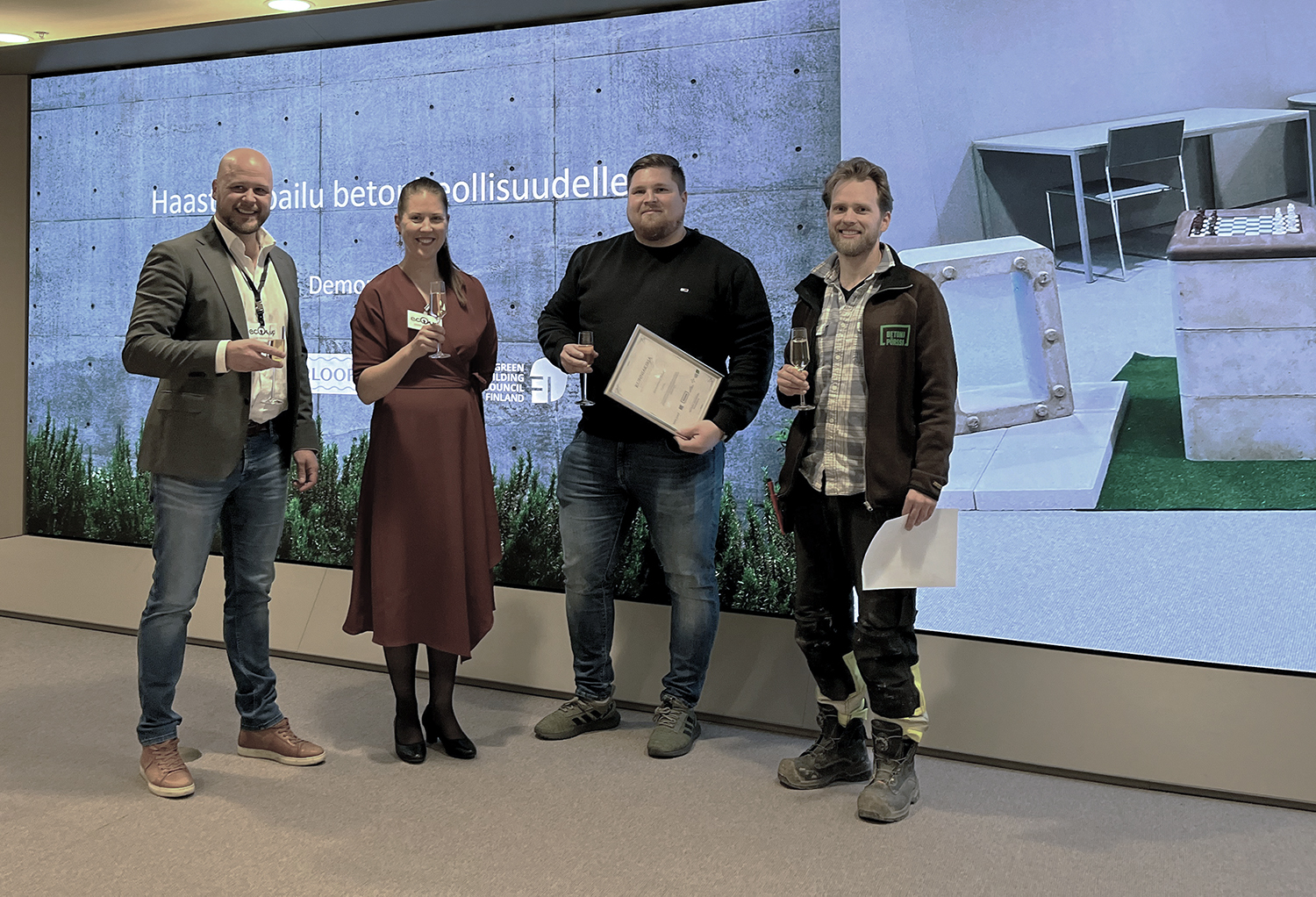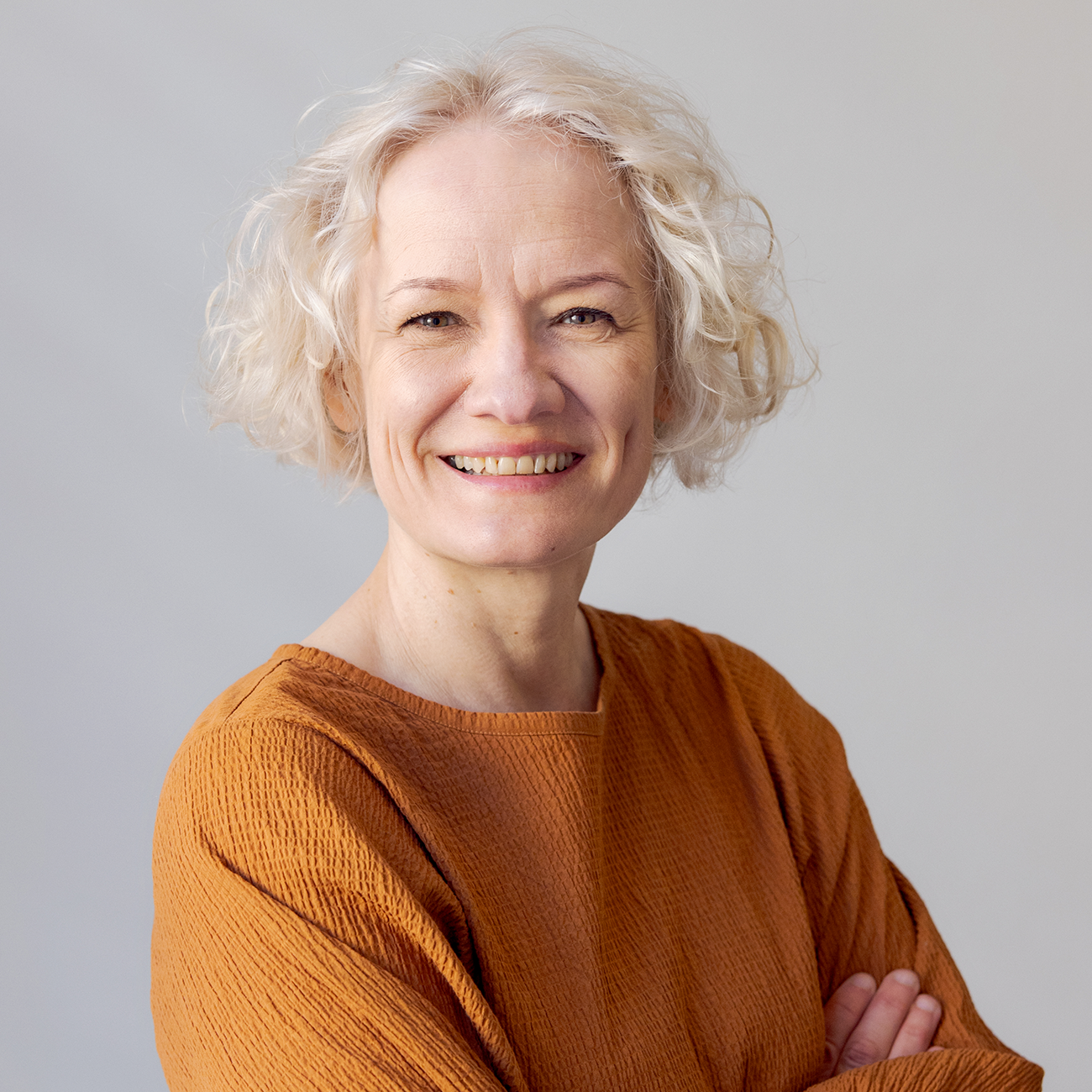Helsinki invited concrete companies to innovate new solutions for reducing emissions – four companies to carry out pilots with the City
The City of Helsinki wants to promote more efficient material use and invited concrete companies to try whether insulation wool from demolished buildings could be reused in the manufacture of concrete. The objective was to reduce the carbon footprint of concrete by developing new concrete recipes and products that utilise powdered demolition wool. A total of nine concrete industry companies took part in the experiment, four of which will get to pilot their solutions with the City.

New solutions and the development of circular economy are necessary for the construction industry, as emission reduction is subject to major requirements. Cement, the binder used in concrete, produces approximately 5–8% of the entire world’s greenhouse gas emissions.
“Helsinki’s goal is to be carbon neutral by 2030. Construction has a major impact on emissions at the global level, and minimising the use of virgin natural resources requires a major change from the entire construction industry,” explains Project Manager Mira Jarkko from Helsinki’s circular economy cluster program.
In Finland alone, a total of up to 20,000 tonnes of mineral wool used as insulation in buildings ends up in landfills annually. There is a dire need for regulation development and shared practices. A dense societal structure and our current way of building requires concrete and plenty of support structures made of concrete. However, not all concrete construction can be replaced with wood or steel.
“The City of Helsinki wants to serve as an experimentation platform for piloting innovative solutions in the real environment. In this challenge, companies got to share their experiences regarding the utilisation of new materials with each other and the City alike,” Jarkko says.
Diverse testing of construction wool as the key to success
Over the course of spring and autumn 2022, the City of Helsinki’s circular economy cluster program, the EU-funded WOOL2LOOP project, Saint-Gobain Finland, Green Building Council Finland, Verona and Ytekki held an innovation challenge for concrete industry companies, the objective of which was to utilise demolition wool in concrete recipes. The powdered mineral wool used in the experiments was sourced from the Laakso Health Station demolition site.
A total of nine companies took part in the innovation challenge, seven of which attended the demo day of the challenge on 28 October at the City Hall to present their solutions. Swerock was selected as the winner of the challenge. The jury found that Swerock had carried out a thorough and comprehensive experiment on the product, and the product has high volumes.
Swerock tested the use of demolition wool in semi-dry cementitious screed, QS concrete and railway concrete, and the jury were particularly impressed with the strength results in semi-dry cementitious screed.
The competition was close, and the jury awarded second place to three companies, Lujabetoni, EcoUp and Keko Geopolymeerit. The companies impressed the jury with their diverse solutions and observations.
Lujabetoni’s proposal was applauded by the jury for its innovative approach that aims to solve not only the mineral wool problem, but also the stormwater problem caused by climate change by utilising wool in the concrete used to pave bicycle routes.
EcoUp, in turn, was commended by the jury for their robust know-how in wool processing and for having a carefully thought-out product. The company used the test materials to develop a modular product named Pihapala®, which can be used in benches, seats or walls or as planters, for example.
Keko Geopolymeerit developed a modular planter element that is readily portable. With regard to benefits, the inorganic material was found to be long-lasting and free of microplastics, but the use of demolition wool continues to need further development and testing.
The results of the innovation challenges to be implemented in more extensive pilots
With the data collected during the challenge and new product experiments, the four companies selected will continue having discussions with Helsinki’s circular economy cluster. The objective is to continue the development of the innovations presented at the demo day event and join forces to plan experiments for potentially implementing the solutions more extensively.
Watch a video about the innovation challenge (in Finnish)
